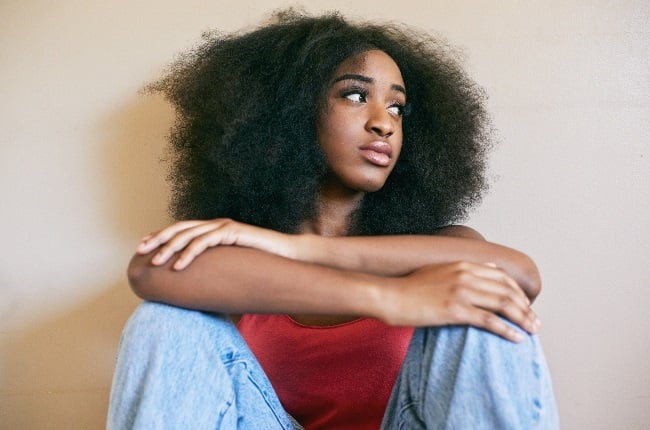
While the 'strong black woman' stereotype was created by black women, I want to argue that it worked a little too well, and even its creators would not be happy with how it is interpreted today, writes Nombulelo Shange.
The idea of the 'strong black woman' is a source of pride for many of us. It makes us feel empowered, particularly when life is breaking us down. But this stereotype can also be very harmful, because it can paint us as homogeneous, unfeeling, angry and unkind people. And when we can't take the abuse that comes with this stereotype in our relationships, friendships, workplaces, schools and other social spaces, it is our character that is questioned, not the action, individual or institution that has mistreated us.
READ | Ebrahim Harvey: Women’s months in SA - Where is the ANCWL?
The perception becomes that you are 'weak' or 'not woman enough'. We end up being too prescriptive and narrow in our understandings or definitions of what it means to be a black woman. But at its core, it should mean inclusion, individual and collective acceptance, and expression of our differences. The 'strong black woman' definitions and labels can be isolating and exclusionary even when they aren't intended to be. When I say "To be a black woman is to be strong", it should not mean those that are not strong are not women or are inadequate at being women. The truth is even vulnerability is important – even for strong women – and is a strength in itself.
Tracing the origins of the 'strong black woman'
Historically, even after slavery was abolished, black women were still viewed as slaves/servants, or as promiscuous. This reduced black women's personhood and they were not taken seriously socially. Even as the more inclusive new world order was emerging, black women were being left out. They struggled to find adequate work, it was more challenging for them to occupy leadership positions, and they were overly sexualised. A lot of this is still true even today. To counter these negative stereotypes, black women came up with the 'strong black woman' narrative, which came from black resistance, including by women's suffragette leader, author and educator Mary Church Terrell. Terrell came up with the slogan "Lifting as we climb" – both to inspire black women to reach for greatness while supporting each other, and to present black women to others as more than just slaves.
Similarly, in South Africa during apartheid, women organised themselves around social issues, with many community-based organisations springing up, including the Alexandra Women's Council (AWC) and Bantu Women's League (BWL). Founded in 1913, the BWL was led by the revolutionary Charlotte Maxeke; she and other BWL members demanded recognition and to be heard during a time when women were not allowed full membership in the African National Congress. In 1947 the AWC successfully resisted forced removals when the Native Affairs Commission was sent to Alexandra Township to move shack dwellers. These women refused to participate in a job market where black women could only be in service of white people. They were self-reliant and made money mainly through traditional beer brewing. Slogans like "Wathinta abafazi, wathint' imbokodo!" ("You strike a woman, you strike a rock") were popularised in South Africa and perpetuated the notion that black women are strong and can handle anything.
The danger
While the 'strong black woman' stereotype was created by black women, I want to argue that it worked a little too well, and even its creators would not be happy with how it is interpreted today. It is used to justify our oppression and abuse instead of celebrating our strengths as was intended. Our mothers and grandmothers carried the weight of the world while still portraying very strong personas, never showing any weakness. The expectation is that we do the same in the workplace, in relationships, our homes, and our communities. It doesn't matter if this comes at the expense of our mental health and energy, because we are 'strong', and we 'should be able to take it'.
READ | OPINION: Juliana Claassens - What meaning will we give the term sisterhood this Women's day?
The women that came before us almost single-handedly raised strong families, skilfully stretching the little money they had to address all the family's needs. And they did it with love – because of the personal sacrifices and lengths our mothers would take to ensure that we were happy, many of us did not realise until much later on in life that we had grown up poor. To make sure we had as many of the things we wanted as possible, they struggled to address their own basic needs. Our mothers and grandmothers did all of this while navigating the worst institutionalised racism and gender oppression while leading or inspiring revolutions and providing a safe space for black men whose bodies, masculinity and sense of self were constantly under attack.
Beyond the negative mental health implications, the 'strong black woman' narrative also affects other parts of social life. This includes workplaces that overburden black women – while paying them significantly less than men or other races, and overlooking them for promotions. In our communities, black women are the lifeline of our churches, community organisations and structures but are side-lined from leadership positions and the potential social or economic rewards that should come with their participation. Even healthcare institutions let us down, with racial and gender bias playing a big role in how we are diagnosed and treated when we are sick.
Rich and powerful black women like Serena Williams, with access to the best healthcare money can buy, are not excluded from this reality: Williams's childbirth complications briefly raised awareness on the inadequate medical care black women get. Often the perception is that we have lied or exaggerated our symptoms or pain experience. When Williams reported having shortness of breath to medical staff, they ignored her and assumed she was confused from her painkillers. This is a global phenomenon, made worse by lack of resources in poorer countries. South Africa's healthcare system, which is built on the backs of mostly black women nurses, simultaneously excludes them. A 2020 Oxfam report titled 'The right to dignified healthcare work is a right to dignified health care for all' found that many black female nurses do not have access to the services they provide – they can't afford healthcare or to take sick leave, because they do not get paid when they do not work.
When we internalise 'strong black womanness'
The 'strong black woman' narrative is most dangerous when we unquestioningly internalise it. We even go to the extent of normalising it in cultural life, as expressed in sayings like, "Kuyabekezelwa emshadweni", meaning, "You persevere through everything in a marriage/relationship." This is what black women often tell themselves and each other when they experience hardship – mostly in relationships but also in general life. Even if this hardship is abuse or a life-threatening situation, we fight to survive, instead of leaving. This Women's Month, let us remember that it is OK to be soft, diverse, and multifaceted. It is OK to leave toxic workplaces and relationships and, most importantly, it is OK to be vulnerable and open to healing – because we have been through the most.
- Nombulelo Shange is a lecturer in the Department of Sociology at the University of the Free State and Chairperson of the University of the Free State Womxn's Forum.
Disclaimer: News24 encourages freedom of speech and the expression of diverse views. The views of columnists published on News24 are therefore their own and do not necessarily represent the views of News24.




 Publications
Publications
 Partners
Partners























